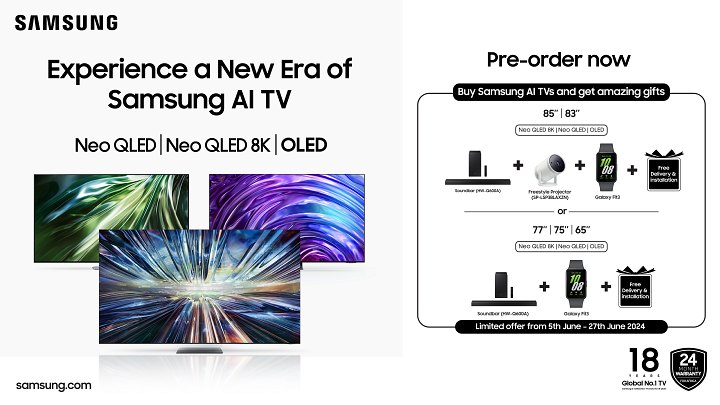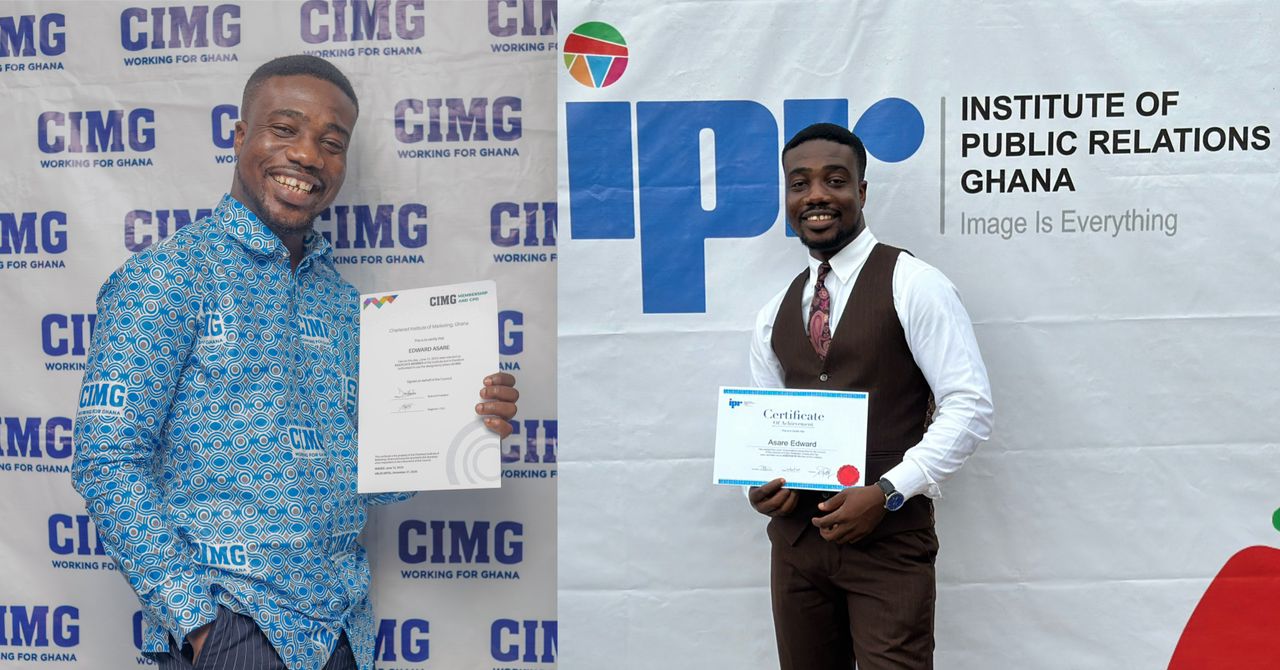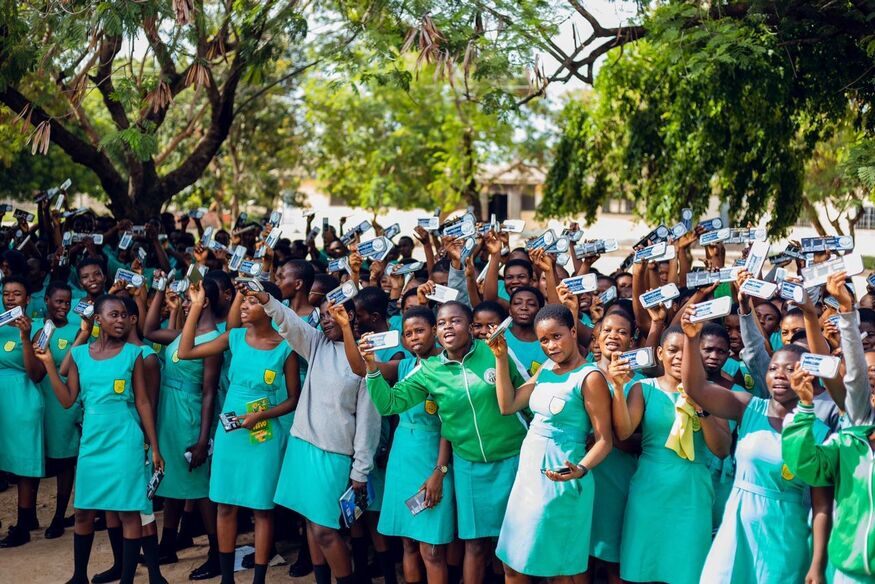People & Lifestyle
AfDBAM2024: African Development Bank’s Economic Outlook report 41 African countries are set for stronger growth in 2024

African economies remain resilient, despite challenges that are testing economies worldwide. According to the latest African Development Bank Group’s African Economic Outlook, 41 countries on the continent are projected to experience stronger growth rates in 2024 than they did in 2023.
The report unveiled at the Bank’s Annual Meetings on Thursday in Nairobi, described Africa’s growth potential as ‘remarkable’. The continent will retain its 2023 ranking as the second fastest-growing region after developing Asia in 2024 and 2025. The theme of the 2024 AEO, “Driving Africa’s Transformation: The Reform of the Global Financial Architecture,” aligns with the Bank’s Annual Meetings’ theme.
African Development Bank President Dr Akinwumi Adesina said while the Bank was proud of the growth projections of many African countries as reflected in the report, it was not blind to the challenges. “Africa’s future is bright, but need to make sure we tackle governance, transparency, accountability, and management of our natural capital. We need to make sure resources are used for the benefit of the people of this continent… The kind of resilience we are talking about cannot happen unless we deal with the issue of climate change.”
He added: “We must make sure we are investing in our young people—in their skills, talents, entrepreneurship, and giving them tools. That is why I am excited about what we are doing with the Youth Entrepreneurship Investment Banks.”
The report warns that Africa is off track to meet almost all of the Sustainable Development Goals by 2030.
It argues that unless corrective action is taken, including to reverse the steepening poverty curve, Africa will be home to almost 9 out of 10 (or 87%) of the world’s extreme poor by 2030.
According to the African Economic Outlook, the rebound in Africa’s average growth includes a rise to 3.7% in 2024 and 4.3% in 2025, exceeding the projected global average of 3.2%. Of this figure, 17 African economies are projected to grow by more than 5 percent in 2024. The number could rise to 24 in 2025, as the pace of growth accelerates.
This growth trajectory is expected to surpass pre-2023 levels, with East Africa leading as the fastest-growing region (up to 3.4 percentage points). Other regions are also projected to witness moderate to robust growth.
In a presentation, Chief Economist and Vice President of the African Development Bank, Prof Kevin Chika Urama, underscored why strategic policies and firm political commitment are key to the effective use of resource wealth for domestic revenue generation.
He also described hard infrastructure, including roads, railways, and bridges, and soft infrastructure, including knowledge and institutional governance capacity, as “two wings of an aircraft”.
“Investing in productive infrastructure is key to accelerating Africa’s structural transformation,” he said.
Growth performance and outlook by region:
Growth prospects vary across Africa’s regions, reflecting differences in economic structure, commodity dependence, and policies.
East Africa

East Africa, the continent’s fastest-growing region, will see real GDP growth rising from an estimated 1.5% in 2023 to 4.9% in 2024 and 5.7% in 2025. The downward revision of 0.2 percentage point for 2024 compared with the forecast in the January 2024 Africa’s Macroeconomic Performance and Outlook (MEO) is due to larger-than-expected contractions in Sudan and South Sudan following the ongoing conflict in the former.
Central Africa

Growth in Central Africa is forecast to moderate from 4.3% in 2023 to 4.1% in 2024 before improving strongly to 4.7% in 2025. The upgraded forecast is due to expectations of stronger growth in Chad and the Democratic Republic of Congo as a result of favourable metal prices.
West Africa

Growth is projected to pick up in West Africa, rising from an estimated 3.6% in 2023 to 4.2% in 2024 and consolidating at 4.4% the following year. This is an upgrade of 0.3 percentage point for 2024 over the January MEO 2024 projections, reflecting stronger growth in the region’s large economies—Côte d’Ivoire, Ghana, Nigeria, and Senegal.
North Africa

In North Africa, growth is projected to decline from an estimated 4.1% in 2023 to 3.6% in 2024 and 4.2% in 2025, with a downward revision of 0.3 percentage point for 2024 from the January 2024 MEO. Except for Libya and Mauritania, growth has been revised downward for all other countries in the region.
Southern Africa

Growth in Southern Africa is projected to pick up slightly from an estimated 1.6% in 2023 to 2.2% in 2024 and firm up to 2.7% in 2025. The growth rates for 2024 and 2025 show an upgrade of 0.1 percentage point over the January 2024 projections, mainly reflecting a 0.7 percentage point increase in South Africa’s projected growth. Due to South Africa’s larger weight in the region, the upgraded growth forecast offset the combined effect of downward revisions in Angola, Botswana, Lesotho, Zambia, and Zimbabwe.
African Economic Outlook makes bold proposals to reform the global financial architecture
The African Economic Outlook 2024 calls for an overhaul of the global financial architecture to transform African economies. This includes giving Africa a greater voice in multilateral development banks and international financial institutions, reflecting its growing share of global gross domestic product and rich natural resources.
Adesina said, “Let’s be clear. By seeking to transform the global financial architecture, Africa is just asking for a fair share of access and availability of resources to build on our vast economic opportunities.”
The report highlights the glaring inadequacies of the current global financial system in closing Africa’s financing gap for structural transformation, estimated at US$402.2 billion annually between now and 2030. To rectify these disparities, the report proposes a bold agenda for reforming the global financial architecture, including in the five following key areas:
Leveraging Private Sector Financing: The African Economic Outlook advocates for greater private sector participation to complement public investments, particularly in areas with high social returns such as climate action and human capital development.
Simplifying the Global Climate Finance Architecture: The report calls for streamlining the global climate finance architecture to enhance coordination and facilitate access for African countries, which are disproportionately affected by climate change.
Reforming Multilateral Development Banks (MDBs): The AEO urges MDBs to revise their business models to provide long-term concessional financing at scale, to developing countries, bolstering their capital positions, channeling a portion of IMF’s Special Drawing Rights (SDRs) to MDBs and ensuring a healthy replenishment of the concessional windows of the African Development Bank and the World Bank—the African Development Fund and the International Development Association.
Streamlining Debt Resolution Mechanisms: Recognizing the slow and cumbersome nature of existing debt resolution mechanisms, the African Economic Outlook advocates for reforms to expedite debt workouts and ensure sustainable debt management, including innovative market-based solutions like “Brady bonds,” debt relief for climate purposes, and sovereign debt authority systems.
Enhancing Domestic Resource Mobilization: The report emphasizes the importance of strengthening domestic revenue mobilization through improved tax policies, enhancing efficiency in government revenue collection and utilization, combatting illicit financial flows and tax avoidance, and leveraging Africa’s abundant natural resources.
According to the report, “Domestic resource mobilization is good, but so is the prudent use of such resources. Countries should therefore strengthen capacity to improve public finance management”
Every year, the African Economic Outlook report provides timely evidence and analysis crucial for African policymakers, empowering them to make informed decisions.
People & Lifestyle
Samsung begins pre-order deals for AI TVs in Ghana

Samsung has announced a new era of AI TVs with the launch of its Neo QLED 8K, Neo QLED 4K and OLED TVs at the Unbox & Discover event, with an amazing pre-order offer. Samsung, the Global Number 1 TV brand for 18 years, sets the benchmark for video innovation, with the ultimate embodiment of next-level AI TV technology and excellence designed to upscale every moment at home.
Imagine a world where your viewing experience is always extraordinary no matter the content! Thanks to the 2024 Samsung Neo QLED 8K AI TV powered by the NQ8 AI Gen2 Processor with built-in 8K AI Upscaling Pro Technology, the TV offers quantum leaps in performance by transforming any content into 8K resolution, even your old videos. You will see these videos transform into looking so clear and real, it is like bringing the past right into your living room with sizes ranging from 65 to 85 inches.
The 2024 Neo QLED 4K AI TV comes with cutting-edge innovations and elevates the viewing experience with groundbreaking features powered by the NQ4 AI Gen2 Processor. Enhanced by Real Depth Enhancer Pro and Quantum Matrix Technology, the screen ensures impeccable contrast even in complex scenes. With the world’s first Pantone Validated display for color accuracy and Dolby Atmos for an immersive audio experience, Neo QLED 4K sets the bar. Neo QLED 4K will be available in sizes ranging from 55 to 85 inches.
Made for more than just watching, the 2024 Samsung OLED AI TV ensures peak performance for ultimate gaming experiences. Samsung is also introducing the world’s first glare-free OLED, eliminating unnecessary reflection while preserving deep blacks and clear images under any lighting condition. Powered by the same formidable NQ4 AI Gen2 Processor as the Neo QLED 4K lineup, Samsung’s OLED TVs boast features like the Real Depth Enhancer and OLED HDR Pro, bringing picture quality to new heights from 65 to 83 inches.
Pre-Order Offer
The 2024 AI TVs will be available for pre-order with exclusive premium freebies until 27th June 2024 in all Electroland Ghana Limited and CompuGhana Limited showrooms. Pre-order a Samsung AI TV now to receive a Soundbar, Freestyle Smart Projector, and Galaxy Fit3 with free delivery and installation.
People & Lifestyle
Soulful Songstress Emeli Sandé Scores “Roots” for The Macallan’s Bicentennial Celebration

Internationally renowned singer-songwriter Emeli Sandé takes a surprising turn, crafting a stirring soundtrack titled “Roots” for the esteemed single malt Scotch whisky, The Macallan. This poignant composition marks a unique collaboration as The Macallan celebrates its momentous 200th anniversary.
Sandé, known for her soulful vocals and impactful lyrics, delivers a heartfelt ode to The Macallan’s enduring legacy. Her Scottish roots lend a special resonance to the project, mirroring The Macallan’s deep connection to the land and its unwavering commitment to exceptional craftsmanship.
Just as Ghanaians cherish the rich heritage of Highlife and Afrobeats passed down through generations, The Macallan honors its meticulous craftsmanship and centuries-old legacy with the collaboration.
“Roots” perfectly captures the essence of The Macallan’s enduring spirit. Sandé’s lyrics, “Time will bring its changes, but our roots they will remain,” resonate deeply, reflecting the brand’s commitment to tradition while embracing innovation.
According to Emeli Sandé, “Roots means legacy. You have your roots and they spread so far around the surrounding ground. You have your trunk and that’s your journey through life – the branches can go here, and there, but at the end of the day, everything is coming from the same point.”
The celebration extends beyond music. A captivating film by Jérémie Rozan accompanies the soundtrack, taking viewers on a mesmerizing journey through The Macallan’s past, present, and future. The film showcases the enduring connection that binds generations who have stewarded this iconic brand.
This unexpected collaboration between Emeli Sandé and The Macallan promises a powerful exploration of heritage,artistry, and the pursuit of excellence.
People & Lifestyle
Founding Partner and CEO of the Fearless Fund Arian Simone visits Ghana Presidency

Arian Simone had discussions about Fearless Fund and Fearless fund foundation Africa.

Fearless fund have invested over 27 million US dollars in women of color businesses,Additionally, they have Invested over $850,000 USD in African-founded businesses and provided grants in Côte d’Ivoire.
Follow @fearless.fund for more information
#FearlessFeardom
#ArianSimone
#Fearlessfund
People & Lifestyle
Edward Asare Inducted into IPR Ghana and CIMG as Associate Member

Edward Asare, a seasoned digital marketer, media expert, and PR professional, has been inducted as an associate member of both the Institute of Public Relations Ghana (IPR Ghana) and the Chartered Institute of Marketing Ghana (CIMG).
Edward Asare, who currently serves as Digital Marketer at UBA Ghana Ltd, has a passion for helping individuals, brands, and businesses communicate their value and build their online presence. With a background in social media community management and blogging, he has developed a unique approach that integrates marketing and communications to drive brand awareness, visibility, and engagement.
His induction into IPR Ghana and CIMG proves his expertise and commitment to excellence in the field. As an associate member, Edward will contribute to the advancement of public relations and marketing practices in Ghana, sharing his knowledge and experience with peers and professionals.
People & Lifestyle
Eye Care Tips for Different Age Groups

Maintaining good eye health is essential at every stage of life. From childhood to old age, our eyes require different types of care to ensure they function properly and stay healthy. Here are some essential eye care tips tailored to different age groups:
Infants and Toddlers (0-3 Years)
- Regular Check-ups: Schedule regular eye exams to detect any early signs of vision problems. The first comprehensive eye exam should be done at 6 months of age.
- Monitor Development: Keep an eye on developmental milestones related to vision, such as tracking moving objects and recognizing familiar faces.
- Protect from UV Rays: Use hats and shades for babies to protect their sensitive eyes from harmful UV rays when outdoors.
Children (4-12 Years)
- Annual Eye Exams: Ensure children have annual eye exams to monitor their vision as they grow. Early detection of issues like myopia (nearsightedness) is crucial.
- Screen Time Management: Limit screen time and encourage regular breaks to reduce eye strain. Follow the 20-20-20 rule: every 20 minutes, take a 20-second break and look at something 20 feet away.
- Protective Eyewear: Encourage the use of protective eyewear during sports and recreational activities to prevent eye injuries.
Teenagers (13-19 Years)
- Balanced Diet: Promote a diet rich in fruits, vegetables, and omega-3 fatty acids to support overall eye health.
- Avoid Smoking: Educate teenagers about the risks of smoking, which can lead to serious eye conditions like macular degeneration and cataracts.
- Contact Lens Hygiene: Teach proper contact lens care to prevent infections. Ensure they follow the prescribed wearing and cleaning schedule.
Contact Lens Hygiene
Adults (20-39 Years)
- Routine Eye Exams: Schedule comprehensive eye exams every two years to check for vision changes and early signs of eye diseases.
- Computer Vision Syndrome: For those who spend long hours on computers, use ergonomic setups, take regular breaks, and consider blue light filtering glasses.
- Sunglasses: Wear sunglasses that block 100% of UV rays to protect eyes from sun damage, which can contribute to cataracts and other eye conditions.
Middle Age (40-59 Years)
- Presbyopia Awareness: Be aware of presbyopia, a natural age-related condition that affects near vision. Consider reading glasses or multifocal lenses if needed.
- Monitor Health Conditions: Manage chronic conditions like diabetes and hypertension, which can affect eye health. Regular eye exams can help detect related complications early.
- Protect from Blue Light: Use blue light filtering glasses and reduce screen time to minimize the risk of digital eye strain and potential retinal damage.
Seniors (60+ Years)
- Frequent Eye Exams: Increase the frequency of eye exams to at least once a year to monitor for age-related eye conditions such as cataracts, glaucoma, and macular degeneration.
- Maintain a Healthy Diet: Continue to eat a balanced diet rich in antioxidants, vitamins, and minerals that support eye health.
- Fall Prevention: Ensure living spaces are well-lit and free of hazards to prevent falls that could lead to eye injuries.
General Eye Care Tips for All Ages
- Stay Hydrated: Drink plenty of water to maintain good eye moisture and overall health.
- Avoid Rubbing Eyes: Rubbing can introduce germs and cause irritation or infection.
- Practice Good Hygiene: Always wash hands before touching your eyes, especially when inserting or removing contact lenses.
- Regular Breaks: Follow the 20-20-20 rule to prevent eye strain from prolonged screen use.
Conclusion
Eye care is a lifelong commitment that changes with each stage of life. By following age-appropriate eye care tips and scheduling regular eye exams, you can help ensure that your eyes stay healthy and your vision remains clear. Prioritizing eye health is essential for maintaining overall well-being and enjoying a high quality of life.
People & Lifestyle
Ada Senior High Tech Students Receive 600 Math Sets from UK-Based Philanthropist Stacey Rosa

In a commendable act of generosity and commitment to education, Stacey Rosa, a renowned Ghanaian philanthropist based in the UK, has donated over 600 math sets to the students of Ada Senior High Technical School. This significant contribution is aimed at enhancing the learning experience and academic performance of the students, particularly in mathematics. (more…)
-

 Watch2 days ago
Watch2 days agoSIISI BAIDOO UNVEILS POWERFUL NEW SINGLE “MEDE W’AYEYI”
-

 Buzz2 days ago
Buzz2 days agoHollywood made me feel like a commodity – Genevieve Nnaji
-

 Buzz3 days ago
Buzz3 days agoGrammys will lose its value if brought to Africa – King Paluta
-

 Buzz3 days ago
Buzz3 days agoI won’t abandon Efia Odo; she’s been a supportive friend – King Promise
-

 Buzz2 days ago
Buzz2 days agoWhy Joe Mettle has refused to collaborate with secular artists
-

 Buzz2 days ago
Buzz2 days ago50 people in Ghana contract HIV every 24 hours — Ghana AIDS Commission report
-

 People & Lifestyle3 days ago
People & Lifestyle3 days agoGA MANTSE COMMENDS MTN GHANA FOR PROMOTING DIGITAL INCLUSION
-

 Buzz2 days ago
Buzz2 days agoTeam Eternity could be guilty over Defe Defe song —Copyright office
-

 Buzz19 hours ago
Buzz19 hours agoI have convinced my children not to pursue music – Rex Omar
-

 World News2 days ago
World News2 days agoTravis Scott arrested on disorderly intoxication, trespassing charges in Miami
-

 Gossip2 days ago
Gossip2 days ago86,000 Passports remain uncollected -Yaw Osafo Maafo
-

 Buzz3 days ago
Buzz3 days agoGhanaians will soon fight South Africans over ownership of ‘Amapiano’ – Appietus





























